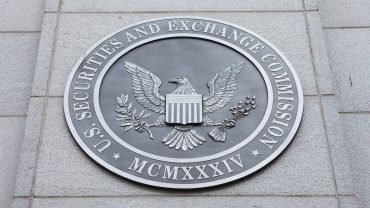A Round-Up of Regulations
With North American regulators’ “Operation Cryptosweep” on the lead, news of regulatory actions that were taken against fraudulent initial coin offerings and investment schemes seem to break across the cryptocurrency world every day. The most recent target of action from the United States SEC is Titanium Blockchain Infrastructure Services. They are now subject to a court order halting its ICO due to supposedly making false claims of business relationships with well-known businesses and the US Federal Reserve.
A press release from SEC states that the commission has “obtained a court order halting an ongoing fraud involving an initial coin offering (ICO) that raised as much as $21 million from investors in and outside the U.S.,” it added that the court also approved an emergency asset freeze and the appointment of a receiver for Titanium Blockchain Infrastructure Services Inc., the firm behind the scheme.
The comppany’s president, Michael Alan Stollery, is being accused by the SEC, of having “lied about business relationships with the Federal Reserve and dozens of well-known firms, including PayPal, Verizon, Boeing and the Walt Disney Compnay.”
The Chief of the SEC Enforcement Division’s Cyber Unit, Robert Cohen, said: “This ICO was based on a social media marketing blitz that allegedly deceived investors with purely fictional claims of business prospects. Having filed multiple cases involving allegedly fraudulent ICOs, we again encourage investors to be especially cautious when considering these as investments.”
Originally scheduled for this Friday, the enactment of Israel’s cryptocurrency regulations has been delayed until October.
Last week’s publishing of a draft law about money laundering including specific provisions related to virtual currencies gave room for Israel’s finance minister, Moshe Kahlon to suddenly request that the law not be passed until the bill is ratified.
Mr. Kahlon said: “The existing ordinance for the prohibition of money laundering will lapse with the passing of the new law. The process of installing the new law, which includes public hearings, will take time. Consequently, there will be a period in which there will be no active legal provision concerning this matter, which will lead to a lack of clarity regarding the identification and reporting obligations imposed by the order on [the] prohibition of money laundering.”
The head of the Israeli Bitcoin Association has described the delay of the law’s passing as a significant setback for the country’s cryptocurrency industry. Mr. Manny Rosenfield, as his name is, said: “The postponement of the law that deals with digital currencies will leave start-ups in the same situation, and will cause a situation in which these companies will have to think twice about whether or not to stay in Israel […] This is a blow that will hamper the efforts of Israel to become a leader in a rapidly developing field of technology.”





